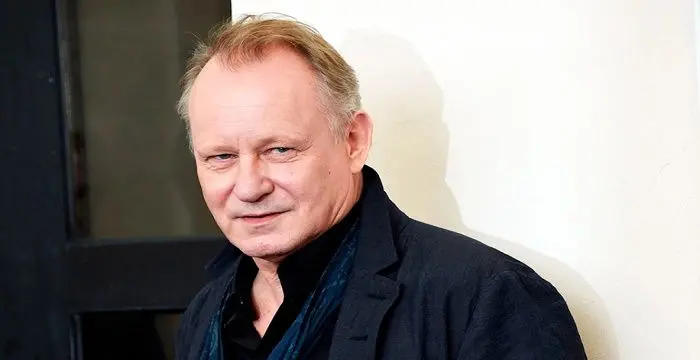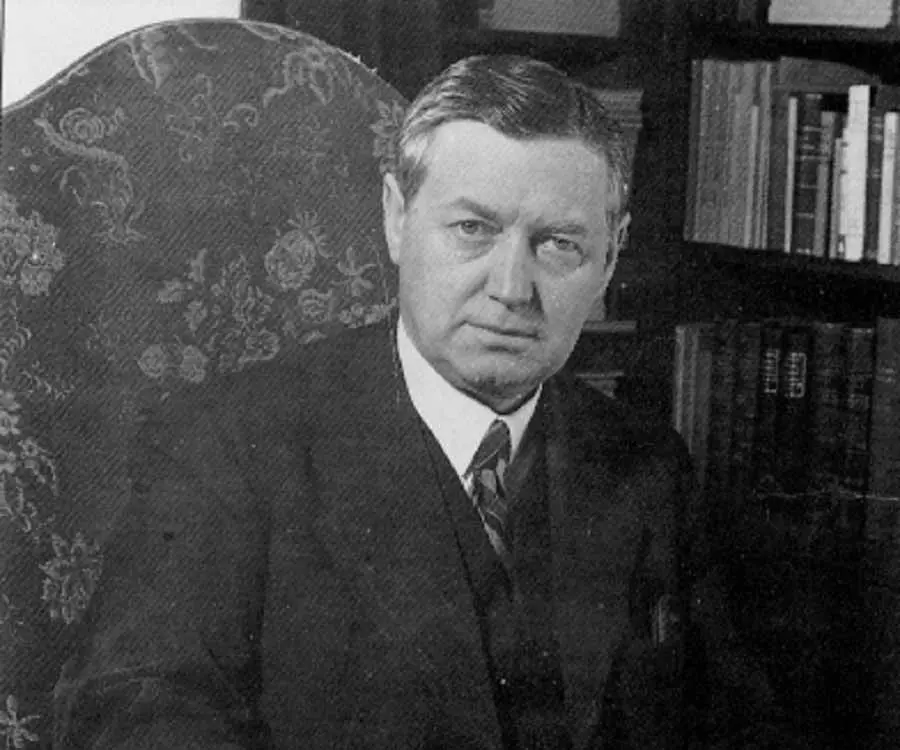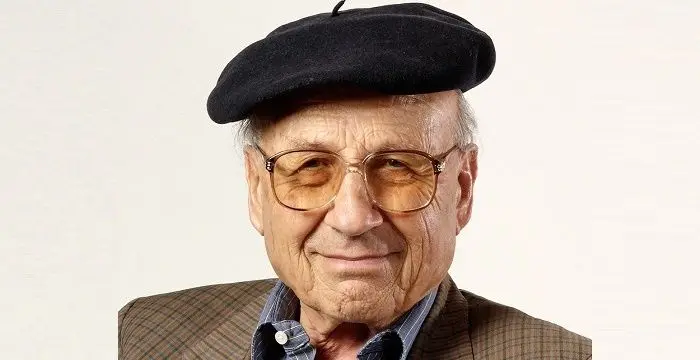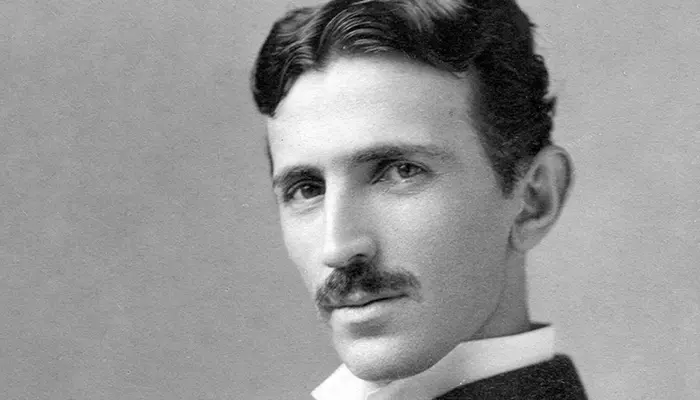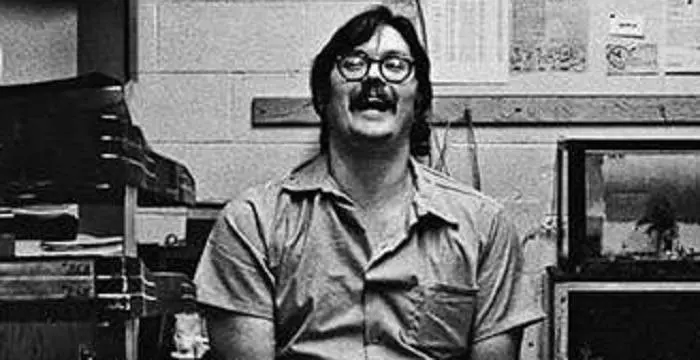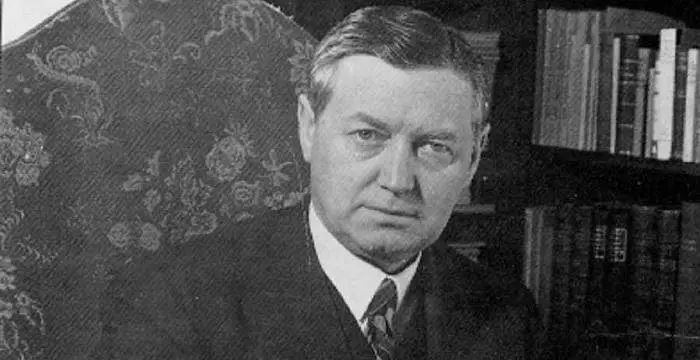
Manne Siegbahn - Swedish Men, Timeline and Childhood
Manne Siegbahn's Personal Details
Manne Siegbahn was a Swedish physicist, who won the Nobel Prize in Physics in 1924
| Information | Detail |
|---|---|
| Birthday | December 3, 1886 |
| Died on | September 26, 1978 |
| Nationality | Swedish |
| Famous | Scientists, Physicists, Swedish Men |
| Spouses | Karin Högbom |
| Known as | Karl Manne Georg Siegbahn |
| Childrens | Bo Siegbahn, Kai Siegbahn |
| Birth Place | Örebro, Sweden |
| Gender | Male |
| Father | Nils Reinhold Georg Siegbahn |
| Mother | Emma Sofia Mathilda Zetterberg |
| Sun Sign | Sagittarius |
| Born in | Örebro, Sweden |
| Famous as | Physicist |
| Died at Age | 91 |
// Famous Swedish Men
Bertil Gotthard Ohlin
Bertil Gotthard Ohlin was a famous Swedish economist. This biography profiles his childhood, family life & achievements.
Joel Kinnaman
Joel Kinnaman is an actor best known for appearing in the Swedish film ‘Easy Money.’ Check out this biography to know about his birthday, childhood, family life, achievements, and fun facts about him.
Stellan Skarsgård
Stellan Skarsgard is a Swedish actor known for his role in the flick ‘Breaking the Waves.’ Check out this biography to know about his birthday, childhood, family life, achievements and fun facts about him.
Manne Siegbahn's photo
Who is Manne Siegbahn?
Manne Siegbahn was a Swedish physicist, who won the Nobel Prize in Physics in 1924, for his work on X-ray spectroscopy. Born in late nineteenth century in the southern Sweden, he had his schooling at Stockholm and university education at Lund. Starting his career as a docent at the age of twenty-five at the University of Lund, he discovered a new group of wavelengths, known as the M series, in X-ray emission spectra, at the age of thirty and became full professor at thirty-four. Later, he shifted to the University of Uppsala and remained there for next fourteen years. Here, he continued with his work on X-ray spectroscopy and established that X-rays, just as light, were electromagnetic radiation. It was his work on X-ray spectroscopy, which earned him his Nobel Prize in Physics. Later, he joined University of Stockholm and in the same year, he was chosen as the first director of the Nobel Institute of Physics, established by the Swedish Royal Academy of Sciences. Here he initiated studies on nuclear physics and turned it into a center of excellence. Young scientists from all over the world came here to work under his guidance. Today, the institute is known as Manne Siegbahn Institute.
// Famous Scientists
Juliane Koepcke
Juliane Koepcke is a German-Peruvian biologist, who was the lone survivor among the 92 passengers and crew of the ill-fated LANSA Flight 508 that crashed in the Peruvian rainforest on 24 December 1971. Know more about her life in this biography.
Henry Cavendish
Henry Cavendish was a theoretical chemist and physicist, renowned for discovery of hydrogen and calculation of the mass of earth. To know more about his childhood, profile, timeline and career read on
Konstantin Tsiolkovsky
Konstantin Tsiolkovsky was a Russian rocket scientist and a pioneer of astronautics. This biography provides detailed information about his childhood, family, personal life, career, achievements, etc.
Childhood & Early Years
Karl Manne Georg Siegbahn was born on the 3 December 1886, in Örebro , south-central Sweden. His father, Nils Reinhold Georg Siegbahn, was a stationmaster of the State Railways and was posted at Orebro at time of his birth. His mother’s name was Emma Sofia Mathilda Zetterberg.
Manne Siegbahn had his secondary education at Högre Allmänna Realläroverker, Stockholm. On passing out from there in 1906, he entered the University of Lund, receiving his candidate’s degree in 1908, the licentiate degree in 1910 and his doctorate in physics in 1911.
His dissertation paper was titled ‘Magnetische Feldmessung’ (magnetic field measurements). Concurrently, from 1907 to 1911, he also served as an assistant to Professor J. R. Rydberg, known for devising the Rydberg formula.
Career
Immediately after receiving doctoral degree, Siegbahn was appointed as a docent at the University of Lund. However, he spent the summer of 1911 studying in Paris and Berlin.
On returning to Lund he organized his own research group and in 1914 started working on X-ray spectroscopy. In 1915, he became a Deputy Professor of Physics in the same university.
In 1916, he discovered a new group of wavelengths in X-ray emission spectra. It later came to be known as the M series. Thereafter, he concentrated on developing equipments as well as techniques suitable for accurate determination of wavelengths of X-rays.
Sometime now, Professor Rydberg’s health began to fail and he remained absent for a prolonged period. Siegbahn had to take his classes. When Rydberg died in 1920, he was appointed in his place as a full professor.
In 1923, Siegbahn received an offer from the University of Uppsala, which was at that time Sweden’s premier university and had a very well established physics department. Although initially in two minds he later accepted it and moved to Uppsala.
At the University of Uppsala, he continued his work on X-ray. In 1924, Siegbahn and his team was able to establish that just as light, X-rays are also refracted when they pass through a glass prism. It proved that X-rays too are electromagnetic radiation.
Later, he developed number of equipments which enabled him to make accurate measurements of the X-ray wavelengths. Moreover, he also developed a standard for naming the different spectral lines. The Siegbahn notation, which is used in X-ray spectroscopy to name the spectral lines that are characteristic to elements, was introduced by him.
In 1924–1925, he visited USA on the invitation of Rockefeller Foundation. There he gave lectures at renowned universities like Columbia, Yale, Harvard, Cornell, Chicago, Berkeley, Pasadena, Montreal etc.
In 1937, Siegbahn shifted to the University of Stockholm as Research Professor of Experimental Physics. Later in the same year, the Swedish Royal Academy of Sciences created the Nobel Institute of Physics at Stockholm and Siegbahn was appointed as its first Director. He held both the positions concurrently.
As the Professor of Physics, he continued his work on X-ray spectroscopy. Concurrently, he also initiated studies on nuclear physics and for that purpose had a large cyclotron and an electromagnetic separator built. As a provisional measure, he also had a high-tension generator for 400,000 volts built.
Once everything was organized and suitable methods were developed, he took up a number of important projects. Young scientists, both from Sweden and abroad, took part in these projects, studying the atomic nucleus and its radioactive properties under his guidance.
After Second World War, from 1946 to 1953, he visited the United States of America several times. This time he inspected the main nuclear research institutes like Berkeley, Pasadena, Los Angeles, St. Louis, Chicago, M.I.T. Boston, Brookhaven, Columbia, etc.
In 1964, Siegbahn retired as Professor of Experimental Physics, but continued in his post as the Director of the Nobel Institute of Physics till 1975.
He also served as a member of the International Committee on Weights and Measures from 1939 until 1964.
Major Works
Although Siegbahn worked on diverse fields, he is best remembered for his work on X-ray spectroscopy. By designing new instruments and developing new techniques he facilitated increased accuracy of measurements and also helped to discover many new series within the characteristic X-radiations.
Awards & Achievements
Manne Siegbahn received the Nobel Prize in Physics in 1924 "for his discoveries and research in the field of X-ray spectroscopy".
He received Hughes Medal in 1934, Rumford Medal in 1940 and Duddell Medal and Prize in 1948.
In 1954, Siegbahn was elected a Foreign Member of the Royal Society (ForMemRS). He also received honorary degree from different established universities.
Personal Life & Legacy
Siegbahn married Karin Högbom in 1914. The couple had two children. Their elder son, Bo Siegbahn, later became a diplomat and politician; the younger son, Kai Siegbahn, became a physicist.
He died on 26 September 1978, in Stockholm, at the age of 91.
Siegbahn unit, the standard length used to describe the wavelengths of x-rays has been named after him as. He was also honored on a stamp issued by Guyana in 1995.
In 1988, the Noble Institute of Physics was renamed as Manne Siegbahn Institute.
Trivia
In 1944, he received patent for the Siegbahn pump.
His son, Kai Siegbahn, received the 1981 Nobel Prize in Physics for his contribution to the development of X-ray photoelectron spectroscopy.
// Famous Physicists
Henry Cavendish
Henry Cavendish was a theoretical chemist and physicist, renowned for discovery of hydrogen and calculation of the mass of earth. To know more about his childhood, profile, timeline and career read on
Walter Kohn
Nobel Laureate Walter Kohn was an Austrian-born American theoretical chemist and physicist. Check out this biography to know about his childhood, life, achievements, works & timeline.
Nikola Tesla
Nikola Tesla was a Serbian-American inventor, best known for his development of alternating current electrical systems. This biography of Nikola Tesla provides detailed information about his childhood, life, achievements, works & timeline.
Manne Siegbahn's awards
| Year | Name | Award |
|---|---|---|
Other | ||
| 0 | Duddell Medal and Prize (1948) | |
| 0 | ForMemRS (1954) | |
| 0 | Nobel Prize for Physics (1924) | |
| 0 | Hughes Medal (1934) | |
| 0 | Rumford Medal (1940) | |
Manne Siegbahn biography timelines
- // 3rd Dec 1886Karl Manne Georg Siegbahn was born on the 3 December 1886, in Örebro , south-central Sweden. His father, Nils Reinhold Georg Siegbahn, was a stationmaster of the State Railways and was posted at Orebro at time of his birth. His mother’s name was Emma Sofia Mathilda Zetterberg.
- // 1906 To 1911Manne Siegbahn had his secondary education at Högre Allmänna Realläroverker, Stockholm. On passing out from there in 1906, he entered the University of Lund, receiving his candidate’s degree in 1908, the licentiate degree in 1910 and his doctorate in physics in 1911.
- // 1907 To 1911His dissertation paper was titled ‘Magnetische Feldmessung’ (magnetic field measurements). Concurrently, from 1907 to 1911, he also served as an assistant to Professor J. R. Rydberg, known for devising the Rydberg formula.
- // 1911Immediately after receiving doctoral degree, Siegbahn was appointed as a docent at the University of Lund. However, he spent the summer of 1911 studying in Paris and Berlin.
- // 1914 To 1915On returning to Lund he organized his own research group and in 1914 started working on X-ray spectroscopy. In 1915, he became a Deputy Professor of Physics in the same university.
- // 1914Siegbahn married Karin Högbom in 1914. The couple had two children. Their elder son, Bo Siegbahn, later became a diplomat and politician; the younger son, Kai Siegbahn, became a physicist.
- // 1916In 1916, he discovered a new group of wavelengths in X-ray emission spectra. It later came to be known as the M series. Thereafter, he concentrated on developing equipments as well as techniques suitable for accurate determination of wavelengths of X-rays.
- // 1920Sometime now, Professor Rydberg’s health began to fail and he remained absent for a prolonged period. Siegbahn had to take his classes. When Rydberg died in 1920, he was appointed in his place as a full professor.
- // 1923In 1923, Siegbahn received an offer from the University of Uppsala, which was at that time Sweden’s premier university and had a very well established physics department. Although initially in two minds he later accepted it and moved to Uppsala.
- // 1924At the University of Uppsala, he continued his work on X-ray. In 1924, Siegbahn and his team was able to establish that just as light, X-rays are also refracted when they pass through a glass prism. It proved that X-rays too are electromagnetic radiation.
- // 1924 To 1925In 1924–1925, he visited USA on the invitation of Rockefeller Foundation. There he gave lectures at renowned universities like Columbia, Yale, Harvard, Cornell, Chicago, Berkeley, Pasadena, Montreal etc.
- // 1924Manne Siegbahn received the Nobel Prize in Physics in 1924 "for his discoveries and research in the field of X-ray spectroscopy".
- // 1937In 1937, Siegbahn shifted to the University of Stockholm as Research Professor of Experimental Physics. Later in the same year, the Swedish Royal Academy of Sciences created the Nobel Institute of Physics at Stockholm and Siegbahn was appointed as its first Director. He held both the positions concurrently.
- // 1939 To 1964He also served as a member of the International Committee on Weights and Measures from 1939 until 1964.
- // 1944In 1944, he received patent for the Siegbahn pump.
- // 1946 To 1953After Second World War, from 1946 to 1953, he visited the United States of America several times. This time he inspected the main nuclear research institutes like Berkeley, Pasadena, Los Angeles, St. Louis, Chicago, M.I.T. Boston, Brookhaven, Columbia, etc.
- // 1954In 1954, Siegbahn was elected a Foreign Member of the Royal Society (ForMemRS). He also received honorary degree from different established universities.
- // 1964 To 1975In 1964, Siegbahn retired as Professor of Experimental Physics, but continued in his post as the Director of the Nobel Institute of Physics till 1975.
- // 26th Sep 1978He died on 26 September 1978, in Stockholm, at the age of 91.
- // 1995Siegbahn unit, the standard length used to describe the wavelengths of x-rays has been named after him as. He was also honored on a stamp issued by Guyana in 1995.
// Famous Sagittarius Celebrities peoples
Billie Eilish
Billie Eilish Pirate Baird O’Connell is an American singer and songwriter. Check out this biography to know about her childhood, family, personal life, birthday, etc.
Jacelyn Reeves
Jacelyn Reeves is a former flight attendant who once had a fling with Clint Eastwood. Check out this biography to know about her birthday, childhood, family life, achievements and fun facts about her.
Edmund Kemper
Edmund Kemper is a convicted serial killer from America who murdered ten people. Check out this biography to know about his childhood, life, crimes and other facts about him.
Pietro Boselli
Pietro Boselli is an Italian model, engineer, teacher, and fitness athlete who became famous as the ‘world’s sexiest math teacher’. Check out this biography to know about his birthday, childhood, family life, achievements and fun facts about him.
Niqoles Heard
Lil Niqo is an American rapper and musical artist. Let’s take a look at his family and personal life including age, date of birth, net worth, girlfriends, and fun facts.
Ted Nugent
Ted Nugent is a hard rock musician known for his hits ‘Stranglehold’ and ‘Cat Scratch Fever’. This biography of Ted Nugent provides detailed information about his childhood, life, achievements, works & timeline.
Manne Siegbahn's FAQ
What is Manne Siegbahn birthday?
Manne Siegbahn was born at 1886-12-03
When was Manne Siegbahn died?
Manne Siegbahn was died at 1978-09-26
Where was Manne Siegbahn died?
Manne Siegbahn was died in Stockholm, Sweden
Which age was Manne Siegbahn died?
Manne Siegbahn was died at age 91
Where is Manne Siegbahn's birth place?
Manne Siegbahn was born in Örebro, Sweden
What is Manne Siegbahn nationalities?
Manne Siegbahn's nationalities is Swedish
Who is Manne Siegbahn spouses?
Manne Siegbahn's spouses is Karin Högbom
Who is Manne Siegbahn childrens?
Manne Siegbahn's childrens is Bo Siegbahn, Kai Siegbahn
Who is Manne Siegbahn's father?
Manne Siegbahn's father is Nils Reinhold Georg Siegbahn
Who is Manne Siegbahn's mother?
Manne Siegbahn's mother is Emma Sofia Mathilda Zetterberg
What is Manne Siegbahn's sun sign?
Manne Siegbahn is Sagittarius
How famous is Manne Siegbahn?
Manne Siegbahn is famouse as Physicist


